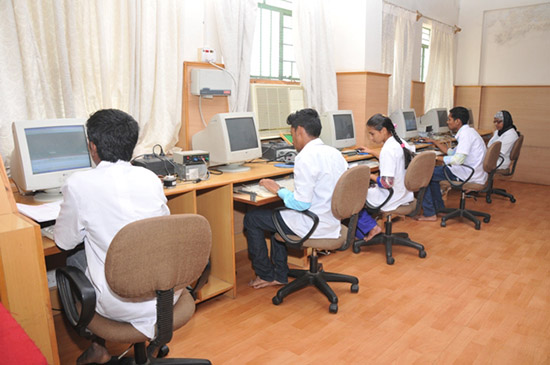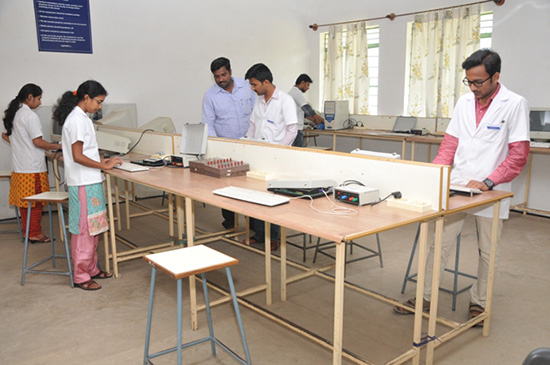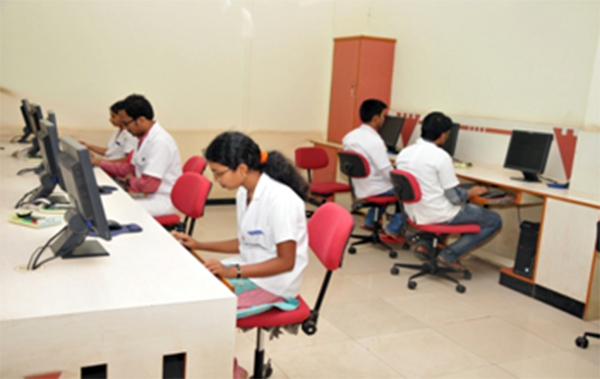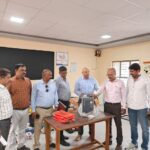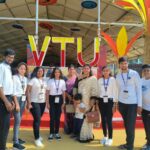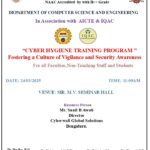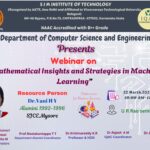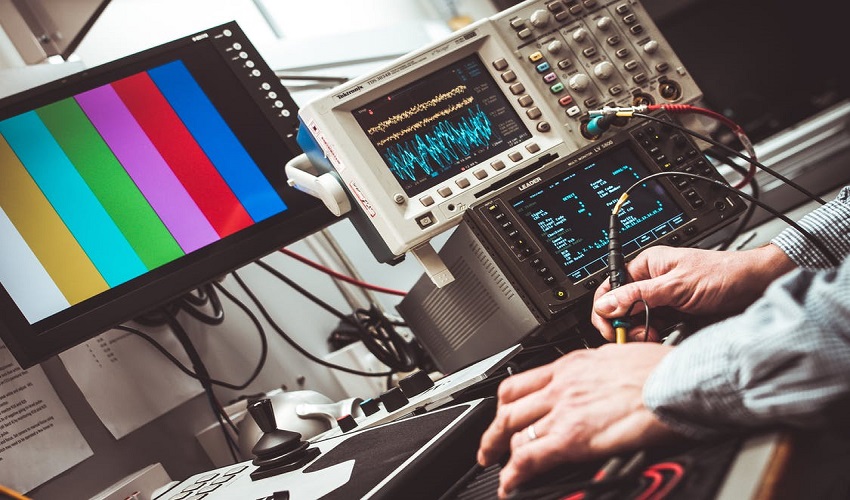
Vision |
To be recognized as an excellent Department in Electronic & Communication Engineering that provides a great learning experience and to be a part of an outstanding community with an admirable environment.
Mission |
- To provide a student centered learning environment which emphasizes close faculty student interaction and co-operative education.
- To prepare graduates who excel in the engineering profession, qualified to pursue advanced degrees and possess the technical knowledge, critical thinking skills, creativity, and ethical values.
- To train the graduates for attaining leadership in developing and applying technology for the betterment of society and sustaining the world environment.
Program Offered |
|
Name of the course |
Intake |
Year of Commencement |
| Electronics & Communication Engineering | 90 | 1982 – 1983 |
Program Outcomes (PO’s) |
PO 1: Engineering Knowledge: Apply the knowledge of mathematics, science, engineering fundamentals, and an engineering specialization to the solution of complex engineering problems.
PO 2: Problem Analysis: Identify, formulate, review research literature, and analyze complex engineering problems reaching substantiated conclusions using first principles of mathematics, natural sciences, and engineering sciences.
PO 3: Design/Development of Solutions: Design solutions for complex engineering problems and design system components or processes that meet the specified needs with appropriate consideration for the public health and safety, and the cultural, societal, and environmental considerations.
PO 4: Conduct Investigations of Complex Problems: Use research-based knowledge and research methods including design of experiments, analysis and interpretation of data, and synthesis of the information to provide valid conclusions.
PO 5: Modern Tool Usage: Create, select, and apply appropriate techniques, resources, and modern engineering and IT tools including prediction and modeling to complex engineering activities with an understanding of the limitations.
PO 6: The Engineer and Society: Apply reasoning informed by the contextual knowledge to assess societal, health, safety, legal and cultural issues and the consequent responsibilities relevant to the professional engineering practice.
PO 7: Environment and Sustainability: Understand the impact of the professional engineering solutions in societal and environmental contexts, and demonstrate the knowledge of, and need for sustainable development.
PO 8: Ethics: Apply ethical principles and commit to professional ethics and responsibilities and norms of the engineering practice.
PO 9: Individual and Team Work: Function effectively as an individual, and as a member or leader in diverse teams, and in multidisciplinary settings.
PO 10: Communication: Communicate effectively on complex engineering activities with the engineering community and with society at large, such as, being able to comprehend and write effective reports and design documentation, make effective presentations, and give and receive clear instructions.
PO 11: Project Management and Finance: Demonstrate knowledge and understanding of the engineering and management principles and apply these to one’s own work, as a member and leader in a team, to manage projects and in multidisciplinary environments.
PO 12: Life-Long Learning: Recognize the need for, and have the preparation and ability to engage in independent and life-long learning in the broadest context of technological change.
Program Specific Outcomes (PSO’s) |
PSO 1: Analyse and Design Electronic Systems for Signal Processing and Communication Applications.
PSO 2: Demonstrate the Conceptual Domain Knowledge With Respect to Architecture, Design, Analysis and Engineering deployment in Data Communication and Computer Networking. Embedded system. Microcontroller, Advanced communication system.
PSO 3: Identify and Apply Domain Specific Tools For Design, Analysis, Synthesis and Validation Of VLSI, Optical Fiber Communication and Communication Systems.
COURSE OUTCOMES2015 Scheme (CBCS) Click.. here.2017 Scheme (CBCS) Click.. here.2018 Scheme (CBCS) Click.. here.2021 Scheme (CBCS) Click.. here.2022 Scheme (CBCS) Click.. here. |
Professional Forum |
ISTE Student chapter conducted in the department
Objectives |
- To train students to meet industry challenges.
- Aiming to improve the department as center for an excellence.
- Strengthening the number of Doctorates.
- To create center for Excellence in Power Electronics, VLSI & Communication Solution providers to industry.
- Providing Industrial Training for students and Faculty.
- To start graduate/post-graduate course in the emerging technologies.
- Establishing Research and Consultancy Center.
- Establishing Innovation Center.
- Establishing Center for Training Rural Youth in IT.
- Emphasizing on pragmatics and practical knowledge.
- To achieve distinguished academic results.
- To inculcate Reputed Professional discipline work culture for quality education.
Salient Features |
- Effective teaching learning process and modern infrastructure.
- Continuous Assessment of student, teacher-guardian scheme and career counseling for all semesters.
- Industry Institute interaction cell, Training and Placement cell & Personality Development cell for both pre final and final year students.
- Industries based project work development during final year.
About Us |
Department of Electronics & Communication was started in the year 1982 with an intake of 100 students & the Department has good academic excellence with a ring of highly qualified & experienced faculty members.
The Department of Electronics and Communication Engineering at SJMIT has a strong focus on providing technical skills to the students with a strong background in mathematics, science and engineering and to enable students to solve problems through analytical reasoning with a motivation to cater to the local and global needs of technological growth. The department provides students an adequate practical training by way of laboratory sessions, design and problem based learning. During learning process, we also emphasize the vital component of effective oral and written communication skills. Students of E & C are under meticulous guidance by the dedicated faculty members that ensures quality teaching with a balanced blend of theoretical as well as practical stuff. Many of our faculties have registered for Ph.D. and are on the verge of being awarded. They attend various workshops, conferences and are involved in R&D activities. Many of our faculties have represented themselves at National & International conferences and presented technical papers.
The Department has all the necessary infrastructure and educational facilities with regard to class rooms, labs, library etc. The laboratories are well equipped with latest technology equipments. It also has store house of knowledge – the departmental library which is well stacked with good collection of books. Besides academics, the department organizes continuous educational programs to enhance knowledge on advanced topics. Technical seminars, personality development programs are conducted regularly.
The Department has the credit of organizing project exhibition ‘TECHNOFEST’, a platform to exhibit the talent of hobby projects as well as final year projects. TECHNOFEST had a very good response from visitors. Many of the projects have been selected for KSCST.
Activities |
The Department is conducts a Project Techno fest and Symposium every year for exposing the talents of the students. These are great boon to the improvement of the technical expertise of our future engineers. Department is conducting a various seminars, workshops from ISTE body for the students career development.
The Department of Electronics & Communication Engineering works actively to prepare the students by training on Group Discussions, seminars, soft skills and communication skills. Due to the perseverance in training and placements, many of our students have been placed in various MNC’s like Infosys, L&T, Wipro, Apara, HCL, Tech Mahindra, Accenture etc.
Teaching Faculty Details |
|
Sl No. |
Faculty Name |
Designation |
Exp. in years |
Qualification |
Research Interest |
Email ID |
|
01 |
|
Prof. & Head |
25.9 |
M.Tech, Ph.D |
Power Electronics |
9741559695 |
| 02 |
|
Asso. Prof. |
17 |
M.Tech, Ph.D, |
|
|
|
03 |
|
Asst. Prof |
19 |
M.Tech (Digital Communication and Networking) |
Communication System |
|
|
04 |
|
Asst. Prof. |
16.9 |
M.Tech, |
Embedded Systems |
|
|
05 |
|
Asst. Prof |
15 |
M.Tech (Computer Science Engineering) |
Signal Processing |
|
|
06 |
|
Asst. Prof |
14.7 |
M.Tech (Digital Communication and Networking) |
Digital Communication and Networking |
|
|
07 |
|
Asst. Prof |
13.6 |
M.Tech (Digital Electronics and communication) |
Digital Electronics & Communication |
|
|
08 |
|
Asst. Prof |
13 |
M.Tech (VLSI Design & Embedded Systems) |
VLSI & Embedded |
|
|
09 |
|
Asst. Prof |
10 |
M.Tech (Digital Communication) |
Image Processing |
|
|
10 |
|
Asst. Prof |
11 |
M.Tech (VLSI Design & Embedded Systems)(Ph.D) |
Embedded Systems |
|
|
11 |
|
Asst. Prof |
10 |
M.Tech (Digital Electronic & Communication) |
Embedded Systems |
|
|
12 |
|
Asst. Prof |
09 |
M.Tech (Digital Communication & Networking) |
Digital communication and Networking |
|
|
13 |
|
Asst. Prof. |
0.1 |
M.Tech, |
|
Technical & Non Teaching Staff Details |
| Sl No. | Name | Designation | Qualification / Specialization | Exp. in years |
| 01 | Sri. S Manjunath | Programmer | Diploma (E&C) | 19.6 |
| 02 | Sri. Syed M Pasha | System Admin | Diploma (E&C), MSc (IT) | 19 |
| 03 | Sri. Rudresh L | Instructor | ITI (EM) | 19.6 |
| 04 | Sri. Devaraj C J | Instructor | Diploma (E&C) | 09 |
| 05 | Sri. Somashekar M T | Instructor | Diploma (E&C) | 09 |
| 06 | Sri. Channaiah T M | Instructor | BE | 05 |
| 07 | Sri. Manjunatha G M | Asst Instructor | ITI | 7.2 |
| 08 | Sri. Charanraja H M | Helper | ITI | 0 |
| 09 | Smt. Vimalakshi A | Attender | PUC | 06 |
The department is equipped with the following Labs |
- Analog Electronics Lab
- Logic Design Lab
- Microcontrollers Lab
- HDL Lab
- Digital Signal Processing Lab
- Analog Communication Lab + LIC Lab
- Advanced Communication Lab
- Microprocessor Lab
- VLSI Lab
- Power Electronics Lab

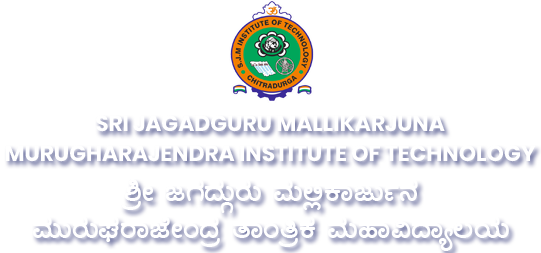
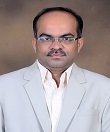 Dr. Siddesh K B
Dr. Siddesh K B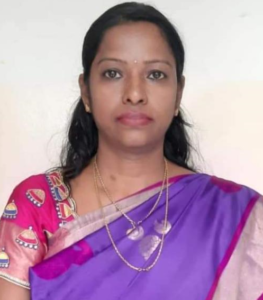 Dr. GAYATHRI R
Dr. GAYATHRI R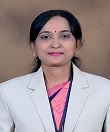 Prof. Roopa S
Prof. Roopa S Prof. Farzana Parveen B A
Prof. Farzana Parveen B A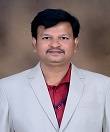 Prof. Jayadevappa R S
Prof. Jayadevappa R S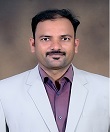 Prof. Lavakumar T B
Prof. Lavakumar T B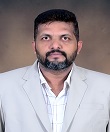 Prof. Sudarshan M K
Prof. Sudarshan M K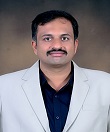 Prof. Sandeep V R
Prof. Sandeep V R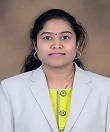 Prof. Tanuja T
Prof. Tanuja T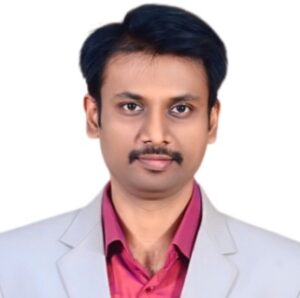 Prof. Chetan S
Prof. Chetan S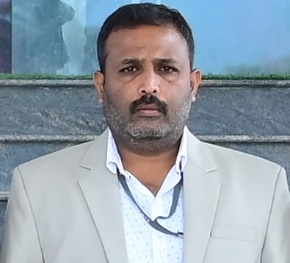 Prof. Raghu S
Prof. Raghu S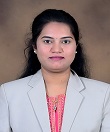 Prof. Nandini G R
Prof. Nandini G R Prof. DIVYA K
Prof. DIVYA K